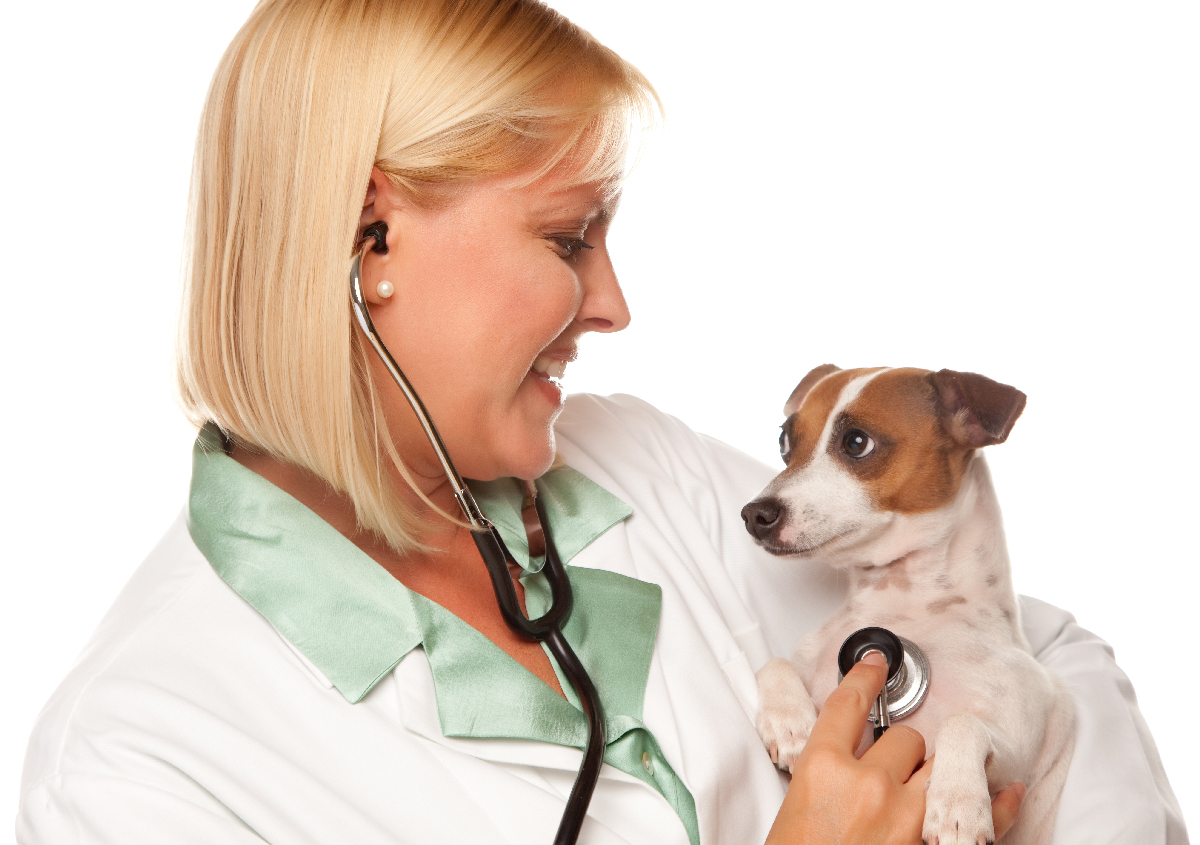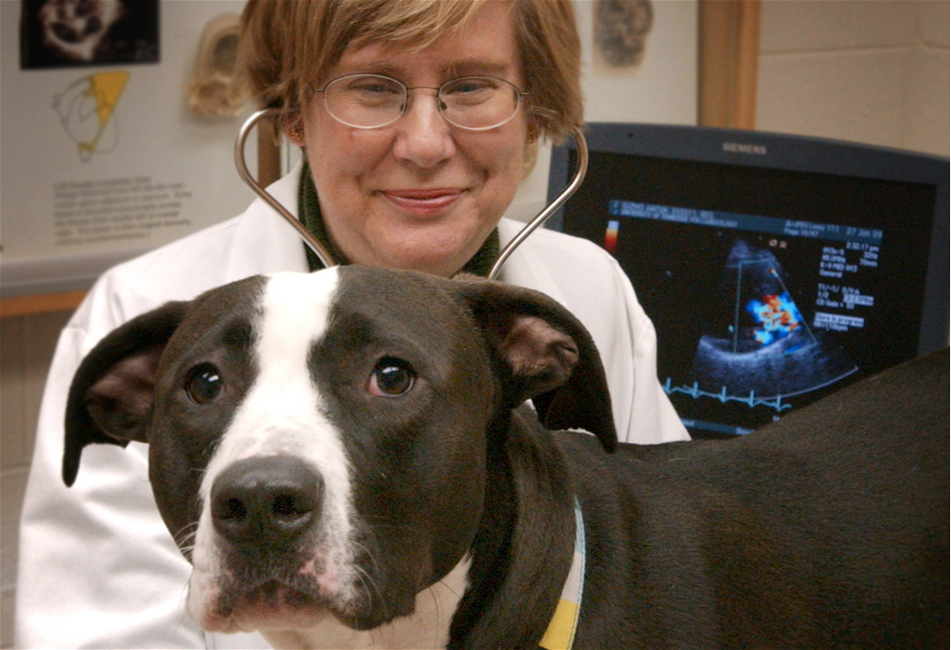Exploring the Crucial Solutions Offered by a Vet Cardiologist: Understanding Ultrasound and CT Check Methods
Veterinary cardiologists play an essential role in the wellness of animals by detecting and treating numerous heart conditions. They make use of sophisticated imaging techniques, such as heart ultrasound and CT scans, to offer accurate evaluations. Each approach has its distinctive advantages and applications. Recognizing these methods is vital for pet proprietors seeking the finest look after their buddies. What variables should animal proprietors take into consideration when selecting in between these analysis devices?

The Role of Veterinary Cardiologists in Animal Medical Care
Vet cardiologists play a vital duty in the health care of pets, focusing particularly on identifying and dealing with heart-related conditions. They possess specialized training that allows them to interpret complex analysis examinations and recognize numerous cardio concerns. These professionals utilize advanced techniques, such as echocardiography and electrocardiography, to evaluate heart function and framework accurately.Veterinary cardiologists likewise establish tailored treatment plans that may include medicines, lifestyle modifications, and, sometimes, medical interventions. Their experience reaches informing animal owners concerning heart health, emphasizing the importance of normal exams and very early discovery of prospective problems. Collaboration with general vets is essential, as it assures complete look after animals with thought cardiac concerns. By using specialized services, vet cardiologists significantly enhance the lifestyle for pet dogs and supply peace of mind for their owners, enhancing the value of heart health and wellness in total animal health.
Typical Heart Problems in Pet Dogs
Common heart issues in pets can considerably impact their health and wellness and lifestyle. Heart whisperings, different kinds of cardiomyopathy, and genetic heart problems are amongst the most common conditions that vets experience. CT Scans For Dogs. Recognizing these issues is necessary for pet dog owners to ensure prompt medical diagnosis and suitable therapy
Heart Murmurs in Pets
Although heart whisperings can be a source of concern for animal proprietors, they are not always a measure of major wellness concerns. A heart whispering is an irregular sound generated by stormy blood flow within the heart. In pet dogs, these murmurs can be triggered by different variables, including hereditary heart issues, valve problems, and even stress and anxiety throughout examinations. Many pets with heart murmurs lead normal lives without significant health influences. To establish the underlying cause, veterinary cardiologists commonly use diagnostic methods such as echocardiograms and Doppler ultrasounds. Early discovery and analysis are essential, as they may assist take care of any kind of potential cardiac problems successfully. Pet dog owners are encouraged to consult their veterinarian for a complete analysis if a heart whispering is found.
Cardiomyopathy Kind Explained
Cardiomyopathy encompasses a group of diseases impacting the heart muscle mass, causing compromised heart function in pets. One of the most usual types include dilated cardiomyopathy (DCM), hypertrophic cardiomyopathy (HCM), and restrictive cardiomyopathy (RCM) DCM largely impacts dogs, causing the heart to enlarge and compromise, which decreases its ability to pump blood efficiently. On the other hand, HCM is more prevalent in cats, identified by the enlarging of the heart wall surfaces, usually causing blocked blood flow. RCM, though less common, takes place when the heart muscle mass comes to be stiff, limiting its ability to load with blood. Each kind provides distinct challenges in medical diagnosis and therapy, requiring specialized veterinary cardiological assessment to guarantee peak management and treatment for impacted animals.
Congenital Heart Issues
Hereditary heart defects stand for a substantial group of cardiac issues in pets, distinctive from obtained conditions such as cardiomyopathy - Cancer Veterinary Near Me. These issues are architectural abnormalities existing at birth, affecting the heart's typical feature. Usual types include license ductus arteriosus, ventricular septal issues, and pulmonic constriction. Symptoms might differ extensively, ranging from mild to serious, and can consist of workout intolerance, coughing, and difficulty breathing. Early medical diagnosis through sophisticated imaging strategies like ultrasound is essential for efficient monitoring. Veterinary cardiologists play a vital function in recognizing these conditions and advising suitable therapy choices, which might include medical management or medical intervention. Recognizing genetic heart problems enables better results and enhanced lifestyle for influenced animals
Recognizing Cardiac Ultrasound: Exactly How It Functions
A significant variety of vet practices currently make use of cardiac ultrasound as a necessary diagnostic tool for examining heart health in animals. This non-invasive method makes use of high-frequency acoustic waves to produce pictures of the heart's structure and function. During the treatment, a vet technician applies a gel to the pet's upper body and uses a transducer to release ultrasound waves. These waves jump off the heart and bordering structures, producing real-time images on a monitor.Veterinarians can assess different facets of heart health and wellness, including chamber size, wall movement, and shutoff feature. Additionally, cardiac ultrasound permits the discovery of abnormalities such as fluid buildup and genetic heart flaws. This strategy is essential for identifying conditions that may not show up with conventional radiographs. By offering detailed details about the heart's anatomy and performance, cardiac ultrasound aids in formulating effective treatment prepare for animals struggling with heart disease.
The Relevance of CT Checks in Diagnosing Heart Issues
Exactly how do CT scans enhance the medical diagnosis of heart disease in vet medication? CT scans supply detailed cross-sectional pictures of the heart and surrounding structures, permitting veterinarians to envision complicated anatomical partnerships. This imaging strategy is specifically helpful in determining hereditary heart problems, cardiac lumps, and problems in capillary. By using sophisticated imaging formulas, CT navigate here scans can evaluate heart chamber dimensions and function, using a comprehensive sight that may be difficult to attain with standard methods.Additionally, CT angiography can imagine blood circulation and identify locations of constriction or obstruction, which is necessary for planning prospective treatments. The speed and precision of CT scans likewise facilitate fast diagnoses, vital in emergency circumstances. Eventually, the incorporation of CT checks into veterinary cardiology substantially boosts the precision of diagnoses, making it possible for targeted treatment strategies and enhancing patient end results for animals struggling with heart disease.
Comparing Ultrasound and CT Check Techniques
While both ultrasound and CT scans are invaluable tools in veterinary cardiology, they use distinctive benefits and limitations that influence their use in identifying heart disease. Ultrasound, or echocardiography, supplies real-time imaging of the heart's structure and feature, permitting veterinarians to analyze heart chambers, valves, and blood circulation. It is particularly reliable for evaluating problems like congestive heart failing and cardiomyopathy. Nevertheless, ultrasound might be limited in picturing certain anatomical frameworks due to individual dimension or obesity.In contrast, CT checks deal comprehensive cross-sectional pictures of the heart and surrounding tissues, making them suitable for identifying structural problems, tumors, or vascular problems. CT scans offer complete understandings, they need sedation and may involve radiation direct exposure. Eventually, the option in between ultrasound and CT checks relies on the specific clinical scenario, the client's condition, and the info needed for a precise diagnosis.
Therapy Choices Available Through Veterinary Cardiology
Veterinary cardiology provides a series of treatment options tailored to deal with why not try this out various heart disease in animals. Treatment strategies frequently start with way of life adjustments, consisting of diet plan modifications and exercise adjustments, targeted at improving total heart wellness. Drugs play an essential duty, with cardiologists recommending medications such as diuretics, beta-blockers, and ACE inhibitors to boost and handle signs cardiac function.In more extreme instances, interventional procedures, such as balloon valvuloplasty or stent placement, may be essential to reduce clogs or improve blood flow. For particular hereditary heart problems, medical alternatives may be explored to deal with architectural problems. Additionally, recurring tracking and follow-up care are crucial parts of an extensive treatment strategy, enabling timely adjustments based on the pet's reaction to treatment. Overall, veterinary cardiology concentrates on providing efficient, customized care to maximize the wellness and well-being of pet patients with heart disease.
How to Prepare Your Pet for a Heart Assessment
Preparing a pet for a cardiac evaluation is crucial to ensure exact results and a smooth procedure. Owners need to first arrange the appointment with the vet cardiologist and discuss any type of specific demands or problems. It is recommended to hold back food for a minimum of 12 hours before the assessment, as this aids enhance imaging high quality throughout procedures like ultrasound or CT scans.Additionally, preserving a tranquil atmosphere on the day of the consultation can help decrease the pet dog's anxiety. It is helpful to bring along any appropriate clinical documents, consisting of previous tests and drugs (Cancer Veterinary Near Me). Proprietors ought to additionally make sure that their animal fits and leashed throughout transportation to the clinic. Familiarizing themselves with the evaluation process can minimize fears and aid in asking informed questions during the assessment. By complying with these actions, proprietors can add considerably to the performance of discover this the cardiac analysis
Frequently Asked Concerns
Just how Long Does a Heart Ultrasound or CT Scan Take?
The duration of a heart ultrasound normally ranges from 30 to 60 mins, while a CT check might take around 15 to half an hour. Aspects such as the individual's condition can influence these time estimates.

Are There Any Threats Linked With These Diagnostic Procedures?

Can I Remain With My Animal During the Treatment?
The veterinary facility's plan normally dictates whether pet owners can continue to be throughout treatments. While some centers motivate owner visibility for comfort, others may call for separation to guarantee safety and security and suitable conditions for analysis imaging.
Exactly how Much Do These Diagnostic Examinations Usually Cost?
The prices of diagnostic examinations, such as ultrasound and CT scans, normally vary based upon location and center. Generally, rates range from a couple of hundred to over a thousand dollars, mirroring the complexity and technology included.
What Is the Recovery Refine After a Heart Examination?
The recovery process after a heart assessment entails keeping track of the pet dog for any type of prompt reactions, making certain comfort, and restricting physical task. Veterinarians commonly offer post-evaluation guidelines to guide family pet proprietors during this necessary recovery period. Heart whisperings, various types of cardiomyopathy, and genetic heart defects are among the most common conditions that veterinarians encounter. A heart whispering is an unusual noise generated by rough blood circulation within the heart. Cardiomyopathy incorporates a group of diseases impacting the heart muscular tissue, leading to compromised cardiac function in pet dogs. Genetic heart defects represent a substantial classification of cardiac issues in family pets, distinctive from acquired conditions such as cardiomyopathy. Ultrasound, or echocardiography, gives real-time imaging of the heart's structure and feature, allowing vets to assess heart chambers, shutoffs, and blood flow.